Russian-Israeli Taken Hostage By Iranian Militia In Iraq
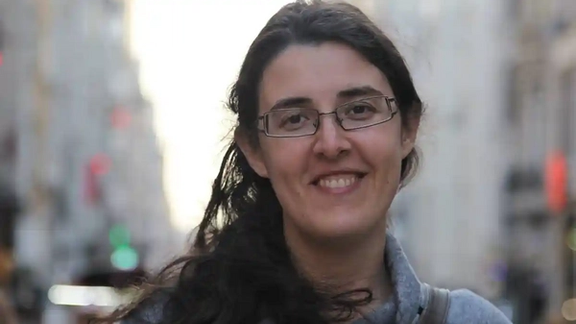
An Iranian proxy militia has taken an Israeli-Russian academic hostage in Iraq, Israeli Prime Minister Benjamin Netanyahu’s office says.

An Iranian proxy militia has taken an Israeli-Russian academic hostage in Iraq, Israeli Prime Minister Benjamin Netanyahu’s office says.
It does not yet appear that the Iran-backed Shiite group Kataib Hezbollah has made any negotiation demands for Elizabeth Tsurkov, who traveled to Iraq on her Russian passport to carry out research for her PhD studies in politics at Princeton University in the United States.
An expert on regional proxies across the Middle East including Turkey's proxies in Syria, she had traveled to several of the region's terror hotspots. Israel's Prime Minister's Office released a statement which confirmed Tsurkov is still alive, adding that the situation is being handled by the relevant bodies in Israel.
Tsurkov's mother Irena said they lost contact two months ago. "From what I had known until today, she was in Turkey, working on her research for Princeton. I didn't even know she was in Iraq," she told Israel's N12 News.
Tsurkov's Twitter page, which has nearly 80,000 followers, was last updated on March 21.
Israeli citizens are forbidden from travelling to Iraq — an enemy state where Kataib Hezbollah is one of the most powerful Iran-backed militia groups, with a history of attacking US targets in the area.
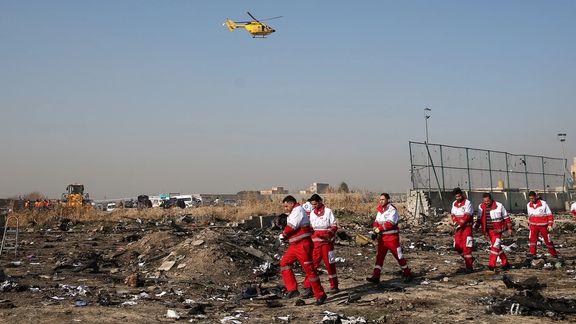
The Association of Families of Flight PS752 welcomed the move by Canada, Britain, Ukraine and Sweden to take the case to the International Court of Justice (ICJ).
“We independently filed our claim before the International Criminal Court and support the four affected countries’ referral to the International Court of Justice,” the Association said in a statement.
“Those who ordered and carried out the crime [involving] the Ukrainian airliner will not be left alone,” Javad Soleimani who lost his young wife Elnaz Nabii in the tragedy tweeted Wednesday and said suing the Islamic Republic was a very important step to attain justice for which the Association made great efforts.
“They murdered 177 innocent civilians, blatantly disrespected their remains, looted and robbed their belongings, lied for three days until they were exposed and continued to subvert justice, the Association of Families of Flight PS752 said in a statement Wednesday.
“The Islamic regime staged show trials at an unqualified and partial military tribunal to convict an unknown patsy for negligence and failure to obey orders, and sentenced him to ten years in prison,” the statement said and thanked the four countries and their legal team for “working steadfastly towards their commitment to truth and justice.”
Some of the victims’ families held a seminar in Toronto Wednesday entitled Flight PS752, Our Mission: Truth and Justice and said they would gather at the city’s Mel Lastman Square to remember the victims.

The Association’s statement was released after the announcement of the International Court of Justice (ICJ) on the same day that it received a joint application by Canada, Britain, Ukraine and Sweden which constitute the International Coordination and Response Group for the Victims of Flight PS752 against the Islamic Republic of Iran concerning the dispute over the downing of the flight on January 8, 2020 which killed all 177 onboard including an unborn child.
In a press release Wednesday, ICJ in the Hague, the principal judicial organ of the United Nations often referred to as the World Court, said the applicants claim that Iran has violated a series of obligations under the Montreal Convention because of the shooting down the civilian aircraft by military personnel of the Revolutionary Guards (IRGC) on January 8, 2020.
They also say Iran subsequently failed to conduct an impartial, transparent, and fair criminal investigation and prosecution consistent with international law.
“Iran must be held to account for their actions and we will continue to fight for the transparency, accountability and justice that victims' families deserve,” Canada’s minister of foreign affairs, Melanie Joly, tweeted after the announcement.
In a tweet Wednesday, UK ambassador to Tehran, Simon Shercliff, said the legal action reflects his country’s unwavering committed to achieving transparency, justice and accountability for the families of the victims.
Iran's hardliners have been comparing the incident with the downing of Flight IR655 on July 3, 1988, by the USS Vincennes. All 290 people onboard the Airbus were killed.
“With today marking the 33rd anniversary of the shooting down of the Iranian civilian airplane #IR655 which resulted in the death of 290 passengers and crew including 66 children, those who were shedding crocodile tears after the Ukrainian plane crash are nowhere to be seen,” a Twitter account bearing the name of Brigadier General Amir-Ali Hajizadeh, the Revolutionary Guards Aerospace Commander at the time of the incident, said on July 3.
Flying from Bandar Abbas in southern Iran towards Dubai, the UAE, IR655 was shot down during the Iran–Iraq War (1980-1988). The United States claimed the Vincennes crew had incorrectly identified the Airbus as an attacking Iranian Air Force F-14 Tomcat and that the airliner was targeted after ten attempts to contact the aircraft both on military and civilian frequencies to no avail.
US President Ronald Reagan sent a written diplomatic note to the Islamic republic shortly after the incident and expressed his deep regret for the shooting down of the plane and declared that reparations or compensation to the families of victims were "a matter that has to be discussed."
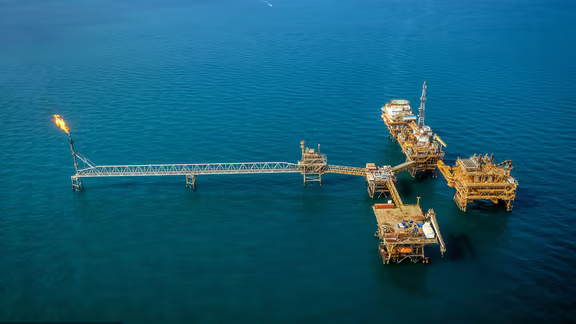
Just a day after Kuwait insisted that Iran has no right over a maritime field in a divided area, Saudi Arabia asserted their “exclusive” right over the field.
Citing the foreign ministry, Saudi state news agency SPA said on Tuesday that the kingdom enjoys “full rights” along with Kuwait to the disputed gas and oil field in the resource-rich Persian Gulf, a declaration that came after Tehran said it was preparing to start drilling.
Called Arash in Iran and Durra or Dorra by Saudi Arabia and Kuwait -- the offshore field was discovered in 1967 and is estimated to have a total proven reserves of around 310 million barrels of oil and 20 trillion cubic feet of gas.
Iran claims any development without its consent breaks international laws, 40 percent of the field located in its territorial waters. However, Saudi Aramco Gulf Operations Company signed a Memorandum of Understanding in December with Kuwait Gulf Oil Company (KGOC) to develop the joint gas field, leaving Iran out of the project. Outraged by the snub, Iran said it has a stake in the field and called the Saudi-Kuwaiti agreement "illegal".
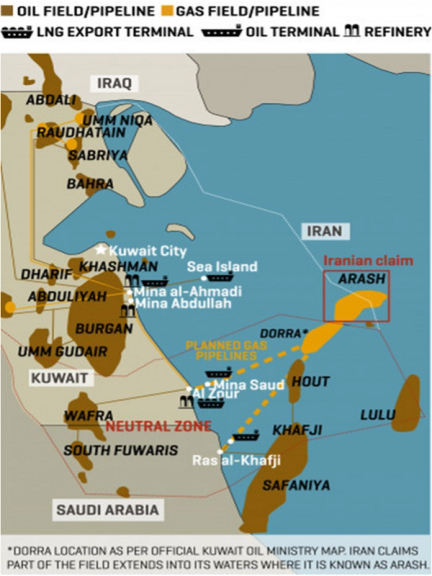
However, it evoked an angry response. “The natural resources in the divided area, including the entire Al-Durra field, is jointly owned by the Kingdom of Saudi Arabia and the State of Kuwait only,” said a Saudi foreign ministry official, claiming that “only these two states have full sovereign rights to exploit the wealth in that region.”
Both Saudi Arabia and Kuwait also renewed their call on Iran to start negotiations on the demarcation of the disputed area with the two Arab countries as one negotiating party.
On Monday, Kuwait’s foreign ministry issued a statement echoing Saudi's claims. Also calling on Tehran to start negotiations, Kuwaiti Oil Minister Saad Al-Barrak said: “We categorically and totally reject Iran’s planned activities around the premises of the Durra offshore gas field."
Earlier in March, Kuwait and Iran had held joint negotiations in Tehran regarding the demarcation of their maritime borders, where both sides stressed the need to settle the matter according to international laws.
An unnamed official of the National Iranian Oil Company told the Kuwaiti newspaper Al-Jarida that the first round of negotiations between the foreign ministries of Iran and Kuwait regarding the delineation of the maritime borders "was not fruitful".
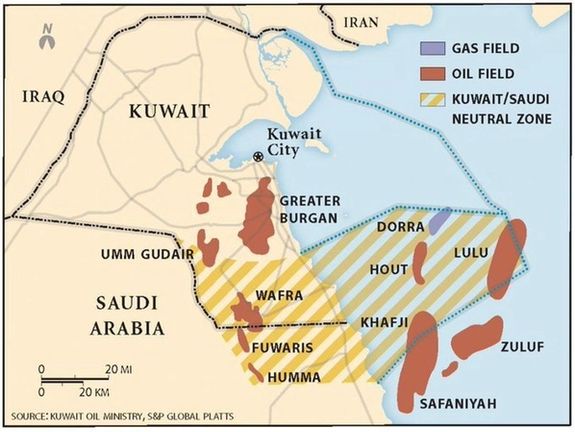
Iran’s Economy Minister Ehsan Khandouzi, who led an economic delegation to the Saudi city of Jeddah in May, sought to address the issue in his trip but the Saudi side rejected calls for discussions, claiming Riyadh has no joint field with Iran that it wants to discuss, prompting Iran to announce plans for drilling operations in the field.
The dispute over the Dorra field stretches back to the 1960s, when Iran and Kuwait each awarded an offshore concession, one to the Anglo-Iranian Oil Company, the forerunner to BP, and one to Royal Dutch Shell. The two concessions overlapped in the northern part of the field, whose recoverable reserves are estimated at some 220 billion cubic meters (seven trillion cubic feet).
Described by Iranian social media users as “the end of the honeymoon” phase following the recent détente between Tehran and Riyadh, the latest round of controversies surrounding the field operations arose after Mohsen Khojsteh-Mehr, the managing director of the National Iranian Oil Company, said last week that "there is full preparation to start drilling in the joint Arash oil field" and that “considerable resources” had been allocated to explore the offshore field.
Last week, Saudi Arabian Oil Company and TotalEnergies signed an $11 billion contract to build a petrochemicals complex near the offshore field.
Criticizing the Iranian government’s inaction vis-a-vis the project, Chairman of the Board of Directors of the Association of Iranian Oil and Gas Drilling Companies Hedayatollah Khademi told ILNA news website in Tehran last month: “It seems that we have surrendered the joint fields to the neighbors.”
Highlighting the fact that Riyadh has significantly developed and extracted from joint fields such as Arash/Durra, Farzad-A, Farzad-B, and Forouzan despite the fact that Iran dug the first exploratory wells in the fields, he said the regime has "not done anything" in the face of encroachment.

Local media in Iran say young girls on the streets of Tehran are having their long hair cut and stolen to sell to the beauty industry.
Sharq daily quoted an Afghan girl living in Tehran telling the story of being abducted by machete-wielding men in a car while their trunk was "full of hair bags".
She said: “I was coming home from school. Showing a knife, they took me into the car... There was a lady and a gentleman. When I got in, the two other girls were just crying…The man cut the hair of all three of us with scissors and tied it up.”
In recent years, Iranian media reported the increase in buying and selling women's hair due to financial needs, but there have been fewer reports of girls' hair being stolen.
Earlier and separate reports on the Khorasan and ISNA news websites said most of the hair reaches extension production companies in Turkey, Arab countries, China, Europe or even some countries of the Americas.
With the deepening economic crisis in Iran, in recent years, local media have repeatedly reported the "sharp increase" in the sale and purchase of body parts in Iran.
Jahan-e-Sanat daily wrote in May that some middlemen send the prospective donors to neighboring countries such as the United Arab Emirates, Turkey, and Iraq to sell their body parts for $7,000 to $15,000, the result of the country’s economic crisis, which has left many people struggling to survive.
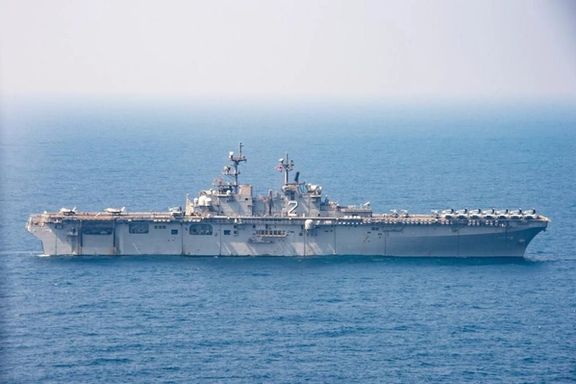
The US Navy said it prevented Iran from seizing two tankers in the Persian Gulf Wednesday in the latest in a series of seizures or attacks on ships in the area since 2019.
Chevron CVX.N said one incident involved the Richmond Voyager, a very large crude carrier managed by the US oil company, and that crew onboard were safe.
An Iranian navy vessel fired shots during the second seizure attempt, Navy Fifth Fleet spokesperson Timothy Hawkins said.
Both incidents took place in the Persian Gulf in waters between Iran and Oman.
Hawkins did not say how the US Navy prevented their seizure. Details regarding the second vessel involved in the incident were not immediately clear.
Since 2019, there have been a series of attacks on shipping in the strategic Persian Gulf waters at times of tension between the United States and Iran.
Iran seized two oil tankers in a week just over a month ago, the US Navy said.

In May, the United States announced that it was bolstering its presence in the Persian Gulf to counter destabilizing actions by Iran against commercial shipping.
“[The] United States will not allow foreign or regional powers to jeopardize freedom of navigation through the Middle East waterways, including the Strait of Hormuz,” National Security Council Coordinator for Strategic Communications John Kirby told reporters May 12. The US Navy in early June said that Iran had interfered with or attacked 15 internationally flagged merchant ships over the past two years.
Iran’s provocative actions come as attempts to restrict its uranium enrichment and reaching a nuclear agreement have remained unsuccessful since President Joe Biden assumed office in January 2021. Since then, Iran has expanded military cooperation with Russia, supplying hundreds of kamikaze drones that are being used in Ukraine against civilian and military targets.
About a fifth of the world's supply of crude oil and oil products passes through the Strait of Hormuz, a choke point between Iran and Oman, according to data from analytics firm Vortexa.
Refinitiv ship tracking data shows the Richmond Voyager previously docked in Ras Tannoura in eastern Saudi Arabia before Wednesday's incident in the Persian Gulf.
A Chevon spokesperson said "there is no loss of life, injury, or loss of containment" aboard the Richmond Voyager.
"The vessel is operating normally. The safety of our crew is our top priority," the spokesperson said in a statement.
In early June Iran claimed that it was forming an alliance with Saudi Arabia and other Persian Gulf states, as well as India and Pakistan.
"The countries of the region have today realized that only cooperation with each other brings security to the area," Iranian army's navy commander Shahram Irani was quoted as saying June 3.
The US reacted quickly saying it “defies reason” for the Islamic Republic to be part of a regional naval alliance while it is the main reason for maritime insecurity in the Persian Gulf region.
US 5th Fleet and Combined Maritime Forces spokesperson Cmdr. Tim Hawkins told Breaking Defense, a digital news outlet on global military, “It defies reason that Iran, the number one cause of regional instability, claims it wants to form a naval security alliance to protect the very waters it threatens.”
With reporting by Reuters

Iran’s IRGC Quds Force Commander claims a power shift from the West to Asia has been a result of US failings, in turn, empowering Iran.
Esmail Ghaani (Qaani) made the comments on Wednesday claiming Iran’s Islamic revolution has been the most effective factor shaping the shifting power balance.
Today, the Islamic Republic is among the most pivotal elements in the region, he claimed. Citing the example of Iraq, where Iran’s IRGC created large militia forces in the mid-2010s to fight against the Islamic State group and exert the regime's influence in Iraqi politics, he explained how Iran has increasingly wielded a hand behind the scenes - much to the chagrin of the Iraqi people.
Iran facing economic isolation from the West and a series of domestic crises, chief among them a lack of oil revenues due to US sanctions and popular opposition, resorts to highlighting the role of Russia and China and its relations with the two powers.
Ghaani also pointed out the growing influence of China, which has begun to step into roles once dominated by the US, not least, in the Middle East. “Let us find our place in this changing of power structure," he said. "Good steps have been taken, but we need to figure out when to get on the power transfer train.”
The perceived lessening of US activity in the region as the Biden administration continues to retreat from Middle Eastern affairs was hailed, Ghaani asserted the regime's resistance to a country it brands its 'enemy'.
“The problem is that we want to tread our own path, but the US wants to put us on a path that it defines itself. The art of the Islamic revolution is to recognize its own path and move in this direction,” added Ghaani.